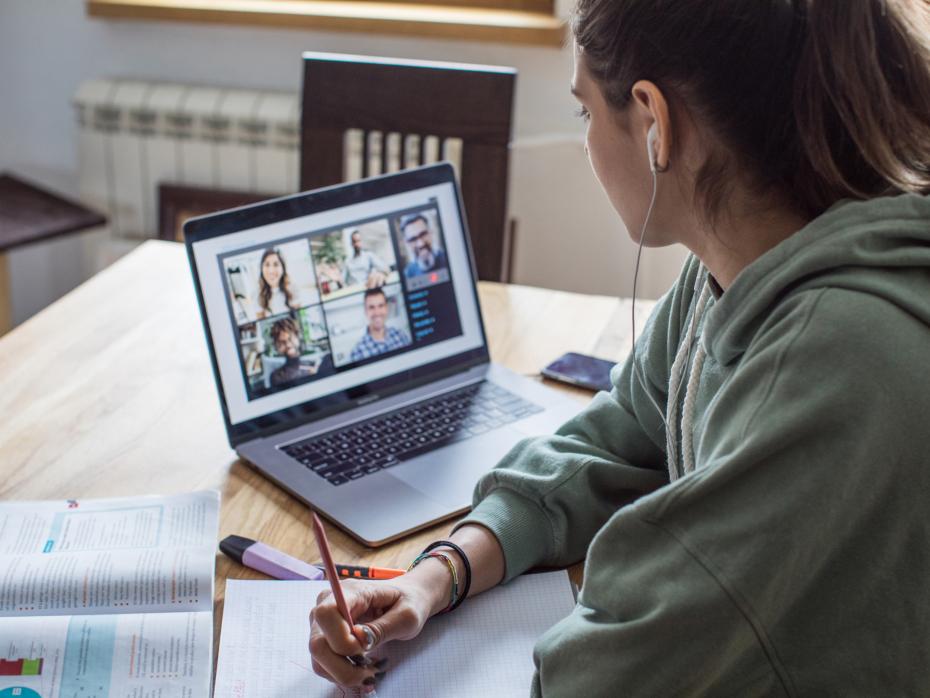The Covid-19 pandemic has changed the face of higher education across the world. Instructors in all kinds of topics were forced to adjust their courses for fully online delivery at the drop of a hat.
Professors have risen to this challenge in different ways. Given the plethora of products designed to assist in offering university-level courses, many professors have come to lean on technological bells and whistles. With the conspicuous rise in education-related technologies and the general move to online teaching, leaning on technology seems like the most obvious path to take in such a crisis.
In a forthcoming volume titled Higher Education amid the COVID-19 Pandemic: Teaching and Supporting Learning through Turbulent Times, professors from a range of disciplines speak to the broad set of methods that can be used to adjust one’s teaching under crisis conditions.
In my chapter, Maintaining Pedagogical Integrity During a Pandemic: Be the Teacher You Are, I make the case for relying on technology as little as possible and maintaining one’s core pedagogical values at every turn.
A trap that is all too easy to fall into is to let the technology drive one’s teaching. These days, you can use software provided by textbook publishers to create and deliver exams. You can use additional software to provide you with outlines of your lectures. You can scour the web and provide links to TED talks and lessons offered by Khan Academy to deliver content. You can create an avatar of yourself when communicating virtually with students.
While relying on such technologies is tempting, over-relying on them has the capacity to take you out of the equation. I don’t know about you, but I know that when I signed up for a career in university teaching, I did so because I wanted a hand in helping cultivate the next generation of leaders. I was full of passion about the behavioural sciences and about sharing this field with eager young minds. Bringing this passion to students, first-hand, was my goal. Now, 26 years on from teaching my first university class, these values continue to characterise my teaching.
The last thing that I want to do is take myself out of the equation. These days, it’s tempting to rely on technologies that have the capacity to take you and your values out of your own classes. My simplest advice is this: don’t let that happen.
Below are three simple principles I suggest you consider in sculpting your online classes in these trying times.
1. Keep yourself in the equation
Your online class can run itself if you let it. In many remote courses, the instructor is not even visible. I say that you make sure to get your students to see who you are. This way, they can see in your eyes that you care. You can hold synchronous sessions. You can hold office hours in which you video-chat with students directly. You can write that section of your lectures that includes those small sidebar anecdotes that you’ve always told when introducing a certain topic. And so forth.
2. Make sure to include yourself in videos that you present
With all due respect to TED, if your class amounts to you simply providing links to a bunch of TED talks, you’re wasting your students’ tuition money. Students can find TED talks themselves. You got into this business because your students have something to gain from you directly. Making video recordings of you delivering content can be very effective under the current conditions. And such products have the capacity to connect you with the students in a way that TED just cannot.
3. Hold office hours and encourage students to meet with you
Under current conditions, it is all too easy to let office hours slip. If your hours are remote, you could easily find yourself seeing them as pro forma. You might be driving to the grocery store during your hours, thinking that there is little chance that any student will ping you. And that you could have a Zoom meeting with any student from anywhere in any case. I say that you take a proactive approach to your office hours as meeting with students therein is one of the few ways in which you can make sure to connect directly with students at the moment. Take your office hours seriously. And make it clear to your students that you are doing just that.
The bottom line
If you’re a university instructor, there is no doubt that your work is deeply affected by the global pandemic. My main advice is to step back and think about your core teaching values. And never let that inner teacher of yours be taken out of the equation.
Glenn Geher is a professor of psychology at State University of New York at New Paltz.
These ideas are taken from his chapter Maintaining Pedagogical Integrity During a Pandemic: Be the Teacher You Are in Higher Education amid the COVID-19 Pandemic: Teaching and Supporting Learning through Turbulent Times edited by Jessica Michel at the University of Michigan.




comment